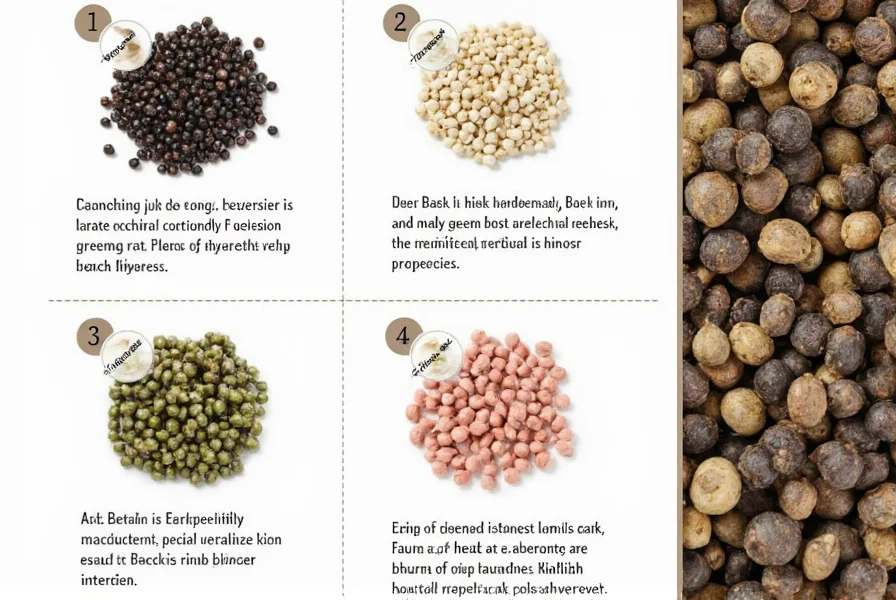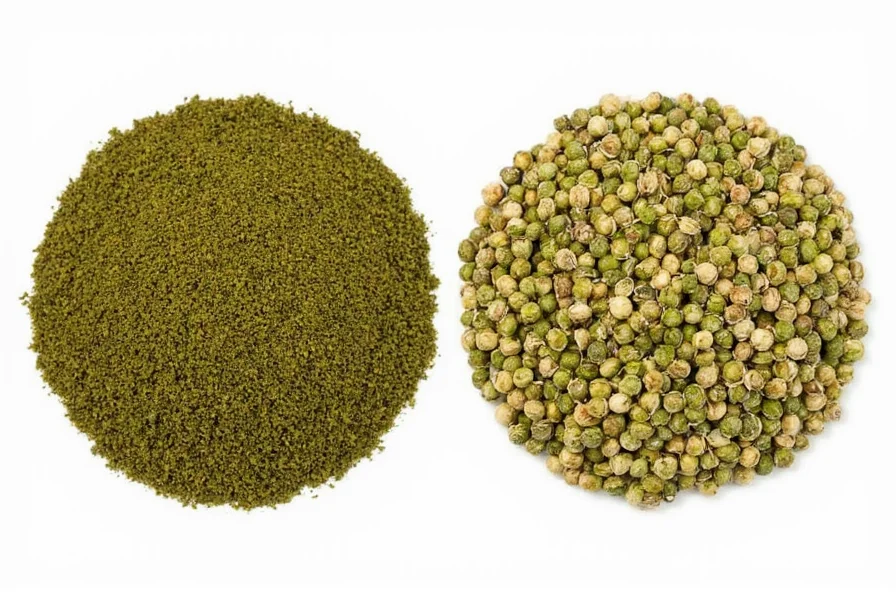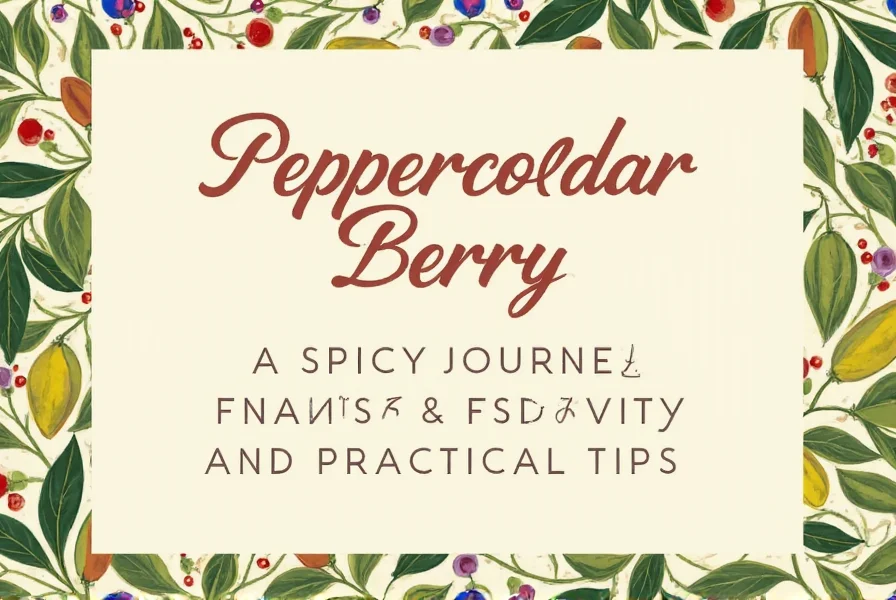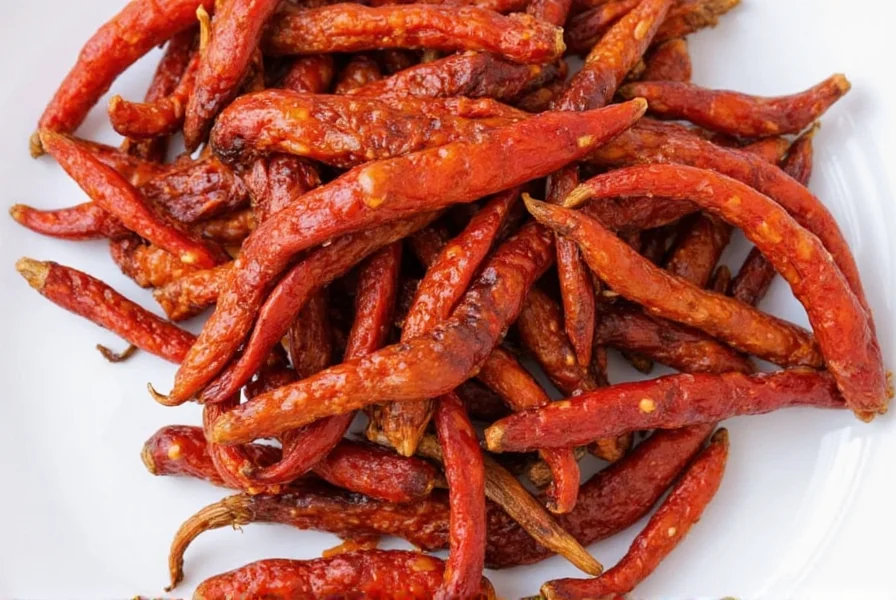Color peppercorns come in four main varieties: black, green, white, and pink. Each has unique origins, flavor profiles, and culinary uses. Here's a comprehensive guide to help you choose and use the right peppercorn for your dishes.
| Type | Harvest Stage | Processing | Flavor Profile | Common Uses |
|---|---|---|---|---|
| Black | Unripe | Dried | Spicy, earthy, bold | General seasoning, grinders, marinades |
| Green | Immature | Brined or freeze-dried | Fresh, herbal, slightly citrusy | Creamy sauces, Asian cuisine |
| White | Ripe | Soaked and stripped of skin | Mellow, earthy, slightly musty | White sauces, mashed potatoes, French dishes |
| Pink | Mature berry | Natural drying | Fruity, floral, mildly spicy | Desserts, cocktails, fruit dishes |
Black Peppercorns – The King of Spice

The most common and widely used peppercorn, black peppercorns are actually unripe fruits of the Piper nigrum plant that have been dried. The drying process causes the outer layer to become wrinkled and dark, giving them their signature appearance.
- Flavor: Sharp, pungent, with earthy undertones
- Best Used: Ground over meats, sauces, soups, or anything that needs a little heat
- Tip: Grind just before use to preserve aroma and potency
Green Peppercorns – Fresh and Vibrant

Green peppercorns are simply immature black peppercorns plucked early and preserved—either freeze-dried, brined, or sun-dried. They retain a more vegetal, fresh flavor.
- Flavor: Herbal, bright, slightly citrusy
- Best Used: In creamy sauces, Thai dishes, or pickling mixes
- Tip: Add at the end of cooking to preserve freshness
White Peppercorns – Subtle Yet Sophisticated

White peppercorns start out black but lose their outer shell through soaking and rubbing. This leaves behind the inner seed, which has a milder, less aggressive flavor profile.
- Flavor: Smooth, musty, earthy with subtle heat
- Best Used: In white sauces, mashed potatoes, European dishes, or any light-colored dish where appearance matters
- Tip: Great for people who want warmth without visible specks
Pink Peppercorns – Sweet & Floral

Contrary to other peppercorns, pink ones don’t come from the same plant! These are usually from the Schinus terebinthifolius tree, also known as the Brazilian pepper tree. Their flavor is sweet, fruity, and floral.
- Flavor: Fruity, floral, slightly spicy
- Best Used: In desserts, fruit salads, cocktails, or gourmet finishing salts
- Tip: Crush gently; too much heat can cause bitterness
Creative Ways to Use Color Peppercorns in Your Kitchen
With a full spectrum of flavors, here are some fun and flavorful ways to use your peppercorns:
- Make a DIY Pepper Blend: Combine crushed black, green, white, and pink peppercorns for a custom "rainbow" mix. Perfect for gifting or spicing up a dinner party!
- Add Pink to Dessert: Sprinkle crushed pink peppercorns on chocolate truffles or vanilla ice cream for a surprising pop of flavor.
- Use Green Peppercorns in Marinades: Soak chicken or pork in a green peppercorn brine for a fresh, zesty twist.
- White Pepper in Mashed Potatoes: For a silky finish, stir in a pinch of white pepper instead of black.
- Smoke with Black Peppercorns: Toss whole black peppercorns onto hot coals when smoking meats—they'll infuse the air with a deep, spicy aroma.
Buying Guide: How to Choose the Best Color Peppercorns
Black Peppercorns
- Features: Whole berries should be firm and uniform in size.
- Advantages: Long shelf life, versatile, enhances most savory dishes.
- Target Audience: Everyday cooks, steak lovers, and anyone who likes a kick.
- Best For: Grinding into meals, making marinades, or adding depth to soups.
Green Peppercorns
- Features: Should be plump, vibrant, and packed in brine or vacuum-sealed bags.
- Advantages: Fresh flavor, minimal processing, easy to use.
- Target Audience: Home chefs, fusion cuisine fans, sauce lovers.
- Best For: Sauces, Thai curries, or quick pickles.
White Peppercorns
- Features: Uniformly pale, clean, and free from mold or moisture.
- Advantages: Less aggressive than black pepper, blends well into light-colored dishes.
- Target Audience: Culinary purists, professional chefs, food stylists.
- Best For: Béchamel, mashed potatoes, béarnaise, or Scandinavian recipes.
Pink Peppercorns
- Features: Bright pink, dry, and fragrant.
- Advantages: Adds visual flair and floral notes to both sweet and savory dishes.
- Target Audience: Gourmet bakers, cocktail enthusiasts, creative chefs.
- Best For: Garnishing desserts, cocktails, or adding complexity to duck dishes.
Storage Tips
- Store whole peppercorns in airtight containers away from sunlight.
- Ground pepper loses potency quickly—grind as needed for maximum flavor.
- Pink and green peppercorns should be refrigerated once opened to maintain freshness.
Frequently Asked Questions About Color Peppercorns
Are different colored peppercorns from different plants?
Most colored peppercorns (black, white, and green) come from the same plant - Piper nigrum. The color difference comes from how they're harvested and processed. Pink peppercorns are the exception, coming from the Schinus terebinthifolius tree (Brazilian pepper tree), not Piper nigrum.
Why are white peppercorns milder than black peppercorns?
White peppercorns are actually fully ripe black peppercorns that have had their outer layer removed through soaking. The outer layer contains most of the pungent compounds, so removing it creates a milder, more earthy flavor profile.
Are pink peppercorns safe to eat?
Yes, culinary-grade pink peppercorns are safe to eat in normal food quantities. However, they're from a different plant family than black peppercorns and can cause allergic reactions in some people, particularly those with tree nut allergies. Always purchase from reputable sources.
Which peppercorn is hottest - black, white, green or pink?
Black peppercorns are generally the hottest, followed by green, then white. Pink peppercorns have a very mild heat with more floral and fruity notes. However, heat perception can vary based on individual sensitivity and how the peppercorns are processed.
How long do peppercorns stay fresh?
Whole peppercorns can stay fresh for 2-3 years when stored properly in airtight containers away from light and moisture. Ground pepper loses potency much faster - within 4-6 months. Green and pink peppercorns (especially if brined) have shorter shelf lives and should be refrigerated after opening.
Can I substitute one color of peppercorn for another?
Yes, but with flavor considerations. Black pepper can generally substitute for white pepper (use slightly less), but not vice versa in light-colored dishes. Green peppercorns offer a fresher flavor that black can't replicate. Pink peppercorns have a completely different profile and are best used as finishing spices rather than substitutes in savory dishes.
Final Thoughts
Peppercorns aren't just for seasoning—they're a culinary adventure waiting to happen. From black to pink, each color offers something unique to your kitchen palette. Now that you've got the breakdown of color peppercorns, why not experiment with a new hue next time you're shopping?










 浙公网安备
33010002000092号
浙公网安备
33010002000092号 浙B2-20120091-4
浙B2-20120091-4